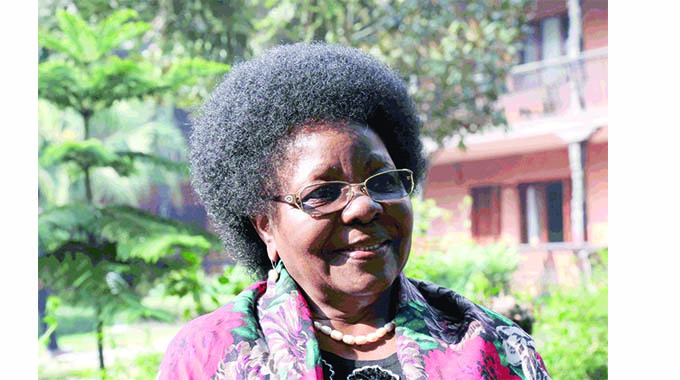Women drive rural industrialisation

Prosper Ndlovu recently in Vic Falls
WOMEN are the driving force behind rural industrialisation in Zimbabwe as they are engaged in a range of economic projects that sustain many families and are contributing to the overall development of the country.
Given adequate empowerment, development experts say women possess a huge potential to spearhead the attainment of the National Development Strategy (NDS1:2021-2025) targets and the ultimate upper middle-income economy vision by 2030.
However, more needs to be done to enhance their access to financial support, acquisition of relevant equipment and connection to key local and international markets.
In separate interviews in Victoria Falls on Friday where a diversity of finished goods they produced were being showcased on the sidelines of the Zimbabwe Indigenous Interdenominational Council of Churches (ZIICC) leadership conference, women entrepreneurs said they were eager to break barriers in business development.
Among the goods displayed were hygiene and sanitation products, handicraft work, value-added textile and leather, agriculture produce, interior decoration, herbal products and value-added fruits, among others.
The products were brought by different women representatives drawn from the country’s 10 provinces who are members of the women empowerment arm under ZIICC.
President Mnangagwa, who was in the resort city for the 3rd International Renewable Energy Conference, briefly interacted with the women entrepreneurs and was impressed by their produce.
Women empowerment leader, Mrs Shuvai Wutaunashe, wife to ZIICC chairman Reverend Andrew Wutaunashe, said women were no longer by-standers in national economic development.
“We share the national Vision 2030 as women in church and we embrace NDS1. We believe manufacturing is not for urban cities only but for rural women as well,” she said.
“The projects you see here are done by rural women from all provinces. Women use the available resources to produce valuable goods and we do value addition as rural women and this generates revenue streams for families.” Mrs Wutaunashe said as a women empowerment initiative they were inspired by the Government’s desire for inclusive development where all citizens play their part to develop the country.
“We are not leaving anyone behind including young girls, which we seek to empower. If women don’t do it, our families and the economy will actually fall because it’s women who sustain communities, do agriculture and send children to school,” she said.
“As you can see rural manufacturing produces washing and bathing soap, dishwashing detergents, foam bath, petroleum jellies, toilet cleaners, basket work and textile products and so on.”
Mrs Charity Malunguza, deputy director administration in the Ministry of Local Government and Public Works, who was participating at the showcase said women have a huge economic potential.
“If women are adequately capacitated, they can do great things in this economy. They can establish and lead big companies. What is being displayed here is evidence that women can achieve more and support NDS1,” said Mrs Malunguza.
“Women can produce quality and standard products and these exhibits show that women have the capacity and potential to feed the local market and exports.”
Another member of the initiative, Mrs Agnes Sithole, said as women they were grateful for supportive policies being created by the Government.
“We are grateful to President Mnangagwa for uplifting women in church and visiting us. All along women used to wait for men to give them handouts to support families but we have now been empowered to generate our own income,” she said.
“Women empowerment helps us to be in charge of our own lives, to be able to take our children to school and we can no longer be destitute.”
Another participant, Mrs Fadzai Zhere, said authorities should do more to unlock women’s economic potential as this will benefit the entire country.
“We need more capacity support to drive rural industrialisation in terms of machinery, finance and all the like so that we grow our businesses,” she said.
“We need support in business registration processes, which is a challenge for many as well as being connected to markets through participation in forums such as the Zimbabwe International Trade Fair (ZITF).
“With such capacity we can even do more exports and earn foreign currency as women have proved that they can use their hands to develop and produce value-added goods.”
To buttress the rural industrialisation drive, Women’s Affairs, Community, Small and Medium Enterprises Development, Dr Sithembiso Nyoni, has said that Government will continue to scale up business training of women in various high impact projects across districts.










Comments